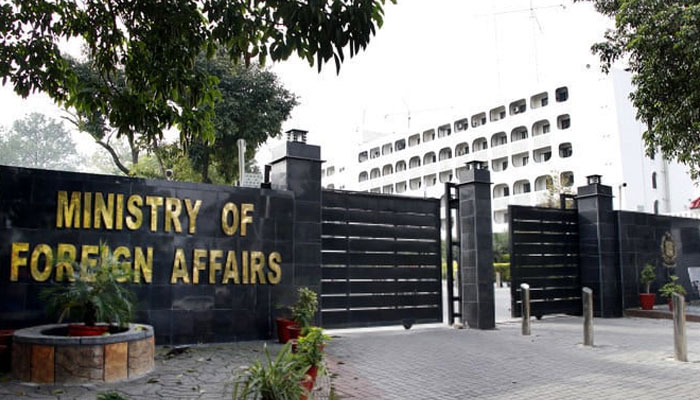Pakistan Slams India’s Claims on Pahalgam Attack, Demands Facts Over Fabrication
India Links Pahalgam Attack to Pakistan; Modi Denies Foreign Pressure
Islamabad — Pakistan has categorically rejected what it termed “baseless assertions and provocative claims” made by Indian leaders during a parliamentary debate on the so-called “Operation Sindoor,” following the Pahalgam attack in Indian Illegally Occupied Jammu and Kashmir (IIOJK).
In a strongly worded statement on Wednesday, Foreign Office spokesperson Shafqat Ali Khan dismissed the Indian allegations as fabrications aimed at distorting facts and inciting hostility. “India should stop acting as judge, jury, and executioner,” he said, condemning New Delhi’s unilateral narrative.
The remarks came after Indian Home Minister Amit Shah claimed that Indian forces recovered Pakistani voter ID cards and locally made chocolates from three men killed in IIOJK, linking them to the Pahalgam attack. Indian Prime Minister Narendra Modi also denied any foreign pressure to de-escalate the recent conflict with Pakistan, despite claims by U.S. President Donald Trump of brokering a ceasefire.
Shafqat Ali Khan termed the Indian account “dangerously misleading,” adding that India had acted without credible evidence or an independent investigation. “The attack carried out by India during the night of 6 and 7 May 2025 resulted in the martyrdom of innocent men, women, and children. India failed to achieve any strategic objective, while Pakistan successfully neutralised Indian military targets—an indisputable fact,” he stated.
The spokesperson criticised India’s refusal to accept Pakistan’s offer for a transparent international investigation into the Pahalgam incident. He questioned the timing of the operation and raised doubts about its credibility. “Is it a mere coincidence that the alleged attackers were eliminated just as the Lok Sabha debate began?” he asked.
“New Normal” Rejected
Pakistan also reiterated its firm rejection of India’s claims about establishing a so-called “new normal” in bilateral ties. “The only acceptable ‘normal’ in our relations is mutual respect, recognition of sovereignty and territorial integrity, and adherence to the UN Charter,” Shafqat said.
He warned that Pakistan remains fully capable of responding to aggression, as demonstrated in the May 2025 conflict that claimed over 70 lives on both sides before a ceasefire was reached through third-party mediation.
Nuclear Blackmail Accusations Dismissed
Responding to Indian accusations of “nuclear blackmail,” Shafqat termed the narrative “self-serving” and designed to mask India’s own escalatory actions. “Pakistan’s defense posture is guided by discipline and restraint, not intimidation,” he added.
Indus Waters Treaty Undermined
The Foreign Office also expressed grave concern over India’s suggestion to suspend the Indus Waters Treaty, calling it a “blatant disregard for international obligations.” Shafqat warned that undermining the treaty jeopardizes regional cooperation and risks further instability.
Call for Peace and Dialogue
Concluding the statement, Shafqat Ali Khan emphasized that despite India’s provocations, Pakistan remains committed to peace, regional stability, and a constructive dialogue—particularly on the core issue of Jammu and Kashmir.
“As a responsible country, Pakistan stands ready to engage in meaningful dialogue to resolve all outstanding disputes,” he said. “However, we will not allow aggression or misinformation to go unanswered.”
Read more: SBP Keeps Policy Rate Unchanged at 11%, Dashing Hopes for Rate Cut




Comments are closed, but trackbacks and pingbacks are open.